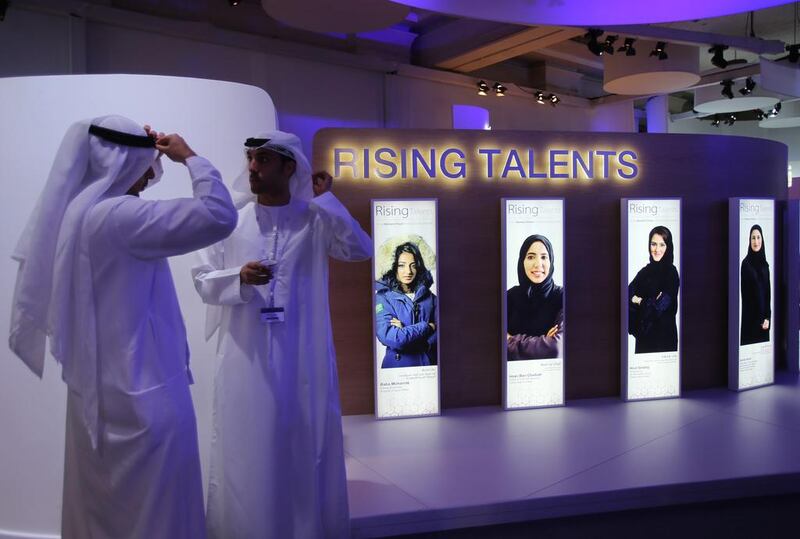Government support for female entrepreneurs and access to finance would help to bridge a gender gap that could add US$28 trillion in annual GDP globally by 2025, according to a McKinsey report released on Tuesday.
Christine Lagarde, the IMF’s managing director, told the Global Women’s Forum in Dubai on Tuesday that policymakers can do a lot to make that happen such as by bringing better access to finance, better education and a fair legal system.
“Whenever women want to achieve something, they need to be able to access finance and when you look at SMEs [small and medium-size enterprises], start-ups, companies around the world, the access of finance for women is a lot less than what it is for men.”
Ms Lagarde, the first woman to become finance minister of a G8 economy when she held the post in France, said that 90 per cent out of 143 countries have rules in their legal systems and constitutions that deny women the same rights for men and these rules need to be changed to give women an equal footing.
She advised women to form alliances at work and stand up for their rights to achieve professional success.
“You have to stand up for yourself, not be submissive or overly aggressively, but it is helpful to pick a champion,” said Ms Lagarde.
“Things don’t happen in isolation. Try to form alliances and find them anywhere on the ladder to actually move along and once you have broken the glass ceiling, make sure that … you yourself be the champion of others.”
Forty out of 95 countries in McKinsey Global Institute’s Gender Parity Score have high or extremely high gender inequality on half of more of 15 indicators studied by the institute.
For Ameenah Gurib-Fakim, the president of Mauritius, becoming an entrepreneur helped her to ascend the ladder of power because it taught her to take risks.
“My turning point [was] the moment I chose to leave the academic world to become an entrepreneur,” said Ms Gurib-Fakim.
“I left behind my comfort zone of a prepaid salary. The comfort zone in doing things in a certain way. All of this was taking a very big risk.
“The notion of having to take risk to become an entrepreneur is something that women have to take upfront. No business school in this world will teach you how to take risk.”
dalsaadi@thenational.ae
Follow The National's Business section on Twitter





